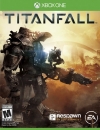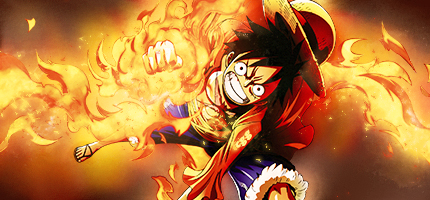Shadow1980 said:
Shiken said:
Hopefully as older online stores close, more people will see how even if the company is alive and healthy, you will lose your digital purchases eventually and lean back to physical media.
Seriously, fk digital...
|
Exactly. I've already lost digital purchases, namely my Halo 2 DLC maps. Back in 2010 (maybe 2011) after MS stopped supporting the original Xbox, I tried to run some local Halo 2 MP for the first time in a long time only to find out that the maps were no longer on my HDD. I'm not sure why, but the point is I was no longer able to re-download them. Fortunately, it was only $21 worth of MP maps (and there was a physical option, as the DLC maps were all released on a disc, which is still available through the second-hand market), but it was enough to make me swear off digital downloads, at least for full games. The idea of losing an entire game was something abhorrent to me. The last paid game downloads I made over Xbox Live were Mega Man 10 and Perfect Dark HD, both early 2010 releases.
I know some people think, maybe even hope, that console gaming goes all-digital in the near future, but I hope they're wrong. It's certainly not an inevitability. Some might point to music as an example of digital triumphing over physical. Music CD sales, and physical music sales in general, were decimated by digital. Full album sales on physical formats declined from just over a billion per year in the late 90s to just over 100M in 2017, a roughly 90% decline (though, interestingly, when people buy full albums they still prefer physical; 60% of all albums sold in the U.S. in 2017 were in CD or LP format). But not all forms of media were created the same. E-books stopped growing as a share of book sales several years ago, having apparently frozen at around 20-25% market share. What trajectory will video games take?
Well, people clearly enjoy the tangible nature of print books, whereas the way music is written, published, released, and consumed meant the medium lent itself first to MP3 singles and now streaming (basically online radio) being the preferred means by which consumers listen to music (excluding good old-fashioned broadcast radio, which is still huge). Video games are a more ambiguous situation. PC gamers, never having really enjoyed the benefits of the first-sale doctrine and the accompanying second-hand market, quickly moved almost exclusively to digital years ago. But console gaming is still dominated by physical. Unfortunately, we don't have any hard numbers regarding annual digital shares of the total "AAA" market (last time we had a solid figure for the whole market was 2014, where sales of retail-release console games were, excluding bundled software, 95% physical). But a Nielsen report from last summer showed that two-thirds of console gamers still preferred physical copies. We have no idea if that will stay constant or will decline in the future. It does mean that physical console games are not going anywhere anytime soon, though.
I certainly hope that the bulk of console gamers still prefer physical in the coming decades, because, without meaningful IP law reforms, we as consumers will likely end up being worse off. When you give up ownership you give up control and all that entails. Not only do you forfeit any right to lend, trade, or sell your copy at your own discretion when you buy digitally, but publishers and platform holders are under no legal obligation to ensure that you still have access to your digital downloads in the future. My NES library is still playable 30 years after I first got the system. Can we guarantee that the same can be said of a digital library of PS4 or XBO games 30 years from now? With the Wii following in the OXbox's footsteps after the Wii Shop Channel's shutdown tomorrow(!), that means that every Virtual Console and WiiWare game I bought is, like my Halo 2 DLC, now similarly at risk should anything happen to them. While MS has taken some preventative measures with backwards compatibility on the XBO, that doesn't cover all games, necessarily including all digital titles that have been de-listed from the XBL Marketplace, and there's no guarantee that they'll keep having 360 games be backwards compatible in future generations or that the 360 or XBO will continue to be able to access XBL 30 years from now. Sony can't even say that much. And streaming? That's an even bigger can of worms. Internet outages, XBL/PSN outages, and bad quality connections could ruin your single-player experience, and games could even be removed from the service, temporarily or permanently, just like movies are regularly rotated out of Netflix, so no more playing them at all. Digital has a tendency to go *POOF!* far more readily than physical copies, which can last a lifetime if taken care of.
|



























































